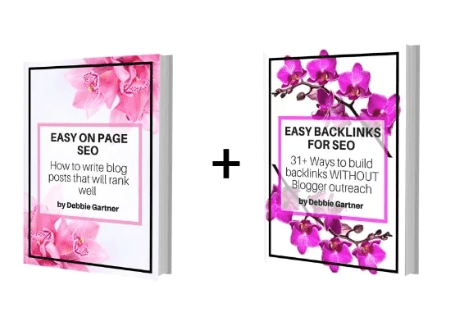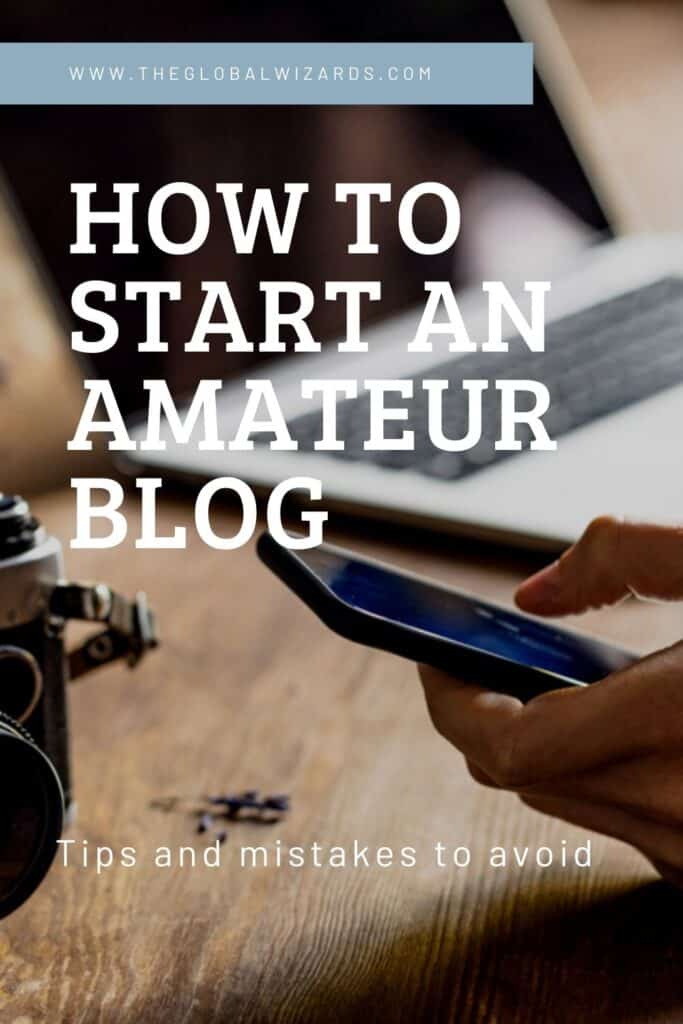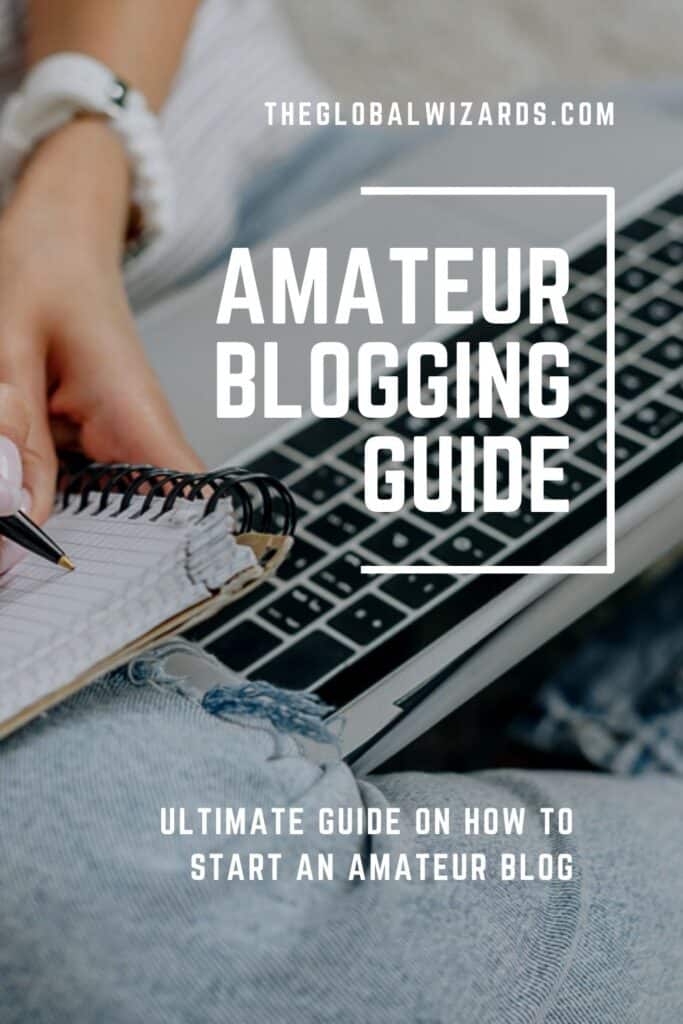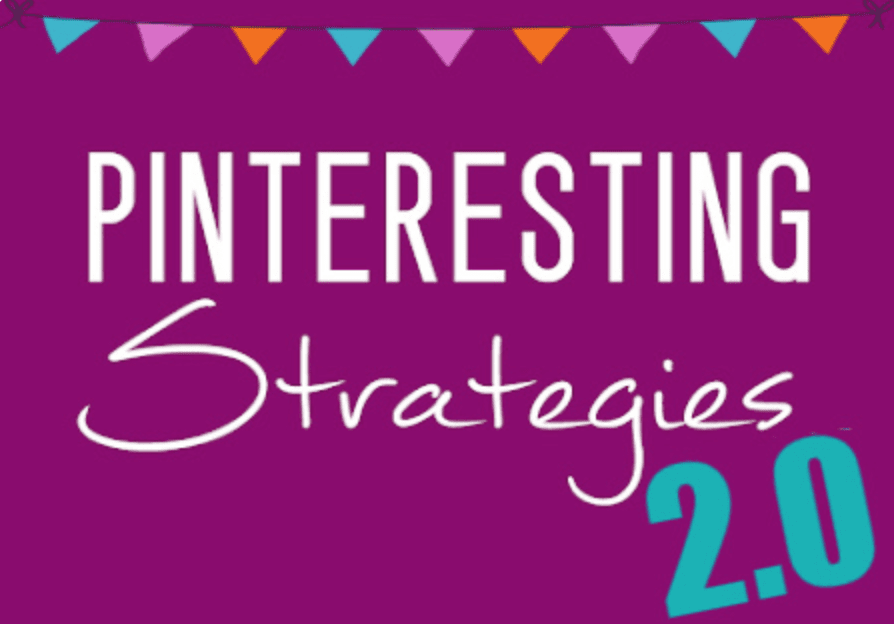How to start an amateur blog, tips for new amateur bloggers, and mistakes to avoid
Blogging has become one of the most popular online activities in recent decades. And it’s no wonder why – amateur blogging is a great way to share your thoughts, ideas, and experiences with the world. But do you want to stay an amateur blogger or do you want to professionalize it and have an income out of it?
If you’re new to the blogging world or if you want to bring your amateur blogging to the next level, it’s important to avoid some of the most common mistakes amateur bloggers make.
Trust me, we’ve been there. We made many mistakes before we could turn this amateur blog into a professional one that makes an income.
If you start out, blogging can be overwhelming. Where do you start? What should you blog about? Which tools should you use?
In this amateur blogging guide, we’ll give you our best tips on how to start an amateur blog, how to grow an income out of it, and how to avoid amateur blogging mistakes.
By following these tips, you’ll be well on your way to creating a successful amateur blog that stands out from the rest and might just grow into something bigger. So let’s get started!

What is amateur blogging?
As we mentioned in the introduction, amateur blogging is becoming increasingly popular. But what exactly is it?
Amateur blogging refers to creating and maintaining a blog, writing articles about your lifestyle or passions, without any professional or formal training, and/or without generating a full-time income out of it.
This doesn’t mean that amateur bloggers are inexperienced, though. In fact, many amateur blogs have a lot to offer in terms of originality and fresh perspectives.
So if you’re thinking about starting a blog, don’t be discouraged if you don’t have any experience. Anyone can be a successful blogger, as long as they avoid making common mistakes.
In the next section, we’ll share some of the most common mistakes amateur bloggers make, as well as some tips on how to avoid them. But first, let’s learn some more about amateur blogging and how to start an amateur blog.
Is income essential for an amateur blog?
No, income is not essential to amateur blogging. There are many amateur bloggers who blog for fun and don’t care about making money.
Why is amateur blogging for fun so popular then? It can be attributed to a few different factors.
- First, it’s easier than ever to create a blog, thanks to platforms like WordPress and Blogger.
- Second, people are increasingly interested in reading about real-life experiences and opinions, as opposed to those of professional writers or celebrities.
- And lastly, amateur bloggers often write about topics that are close to their hearts, making their writing more relatable and personal.
However, many people who start as amateur bloggers, soon realize they could still write about their passions and personal experiences, but also make a side income out of it. And who wouldn’t want that?
So, if you’re interested in turning your blog into a business, then you’ll need to start thinking about ways to generate income from your blog and make sure to avoid certain amateur blogging mistakes from the start.

What amateur blogging topics are most popular?
When it comes to blogging, you can blog about almost anything. However, some topics are more popular than others, just because it is what a lot of people are passionate about.
Here are some of the most popular blogging topics:
- Technology: This is one of the most popular blogging topics, as there is always something new and exciting to write about in the world of technology. Whether it’s a new gadget, software, or an update to a current piece of technology, there is always something to blog about.
- Travel: Blogs writing about travel are very popular. When planning their next trip, people look for tips and advice on where to go. This is a travel blog, so we know what we’re talking about ;-).
- Fashion: Another popular blogging topic is fashion. Fashion trends are always changing, so there is always something new to write about. In addition, fashion bloggers often have a strong following of readers who are interested in their recommendations and opinions.
- Lifestyle: Lifestyle blogs can cover a wide range of topics, from healthy living to home advice. Lifestyle blogs are popular because they offer readers practical information that they can use in their everyday lives.
- Business: Business-related blogs are popular among readers who are looking for information on starting or running a business. These types of blogs often offer helpful tips and advice for entrepreneurs.
- Personal Finance: Personal finance blogs offer readers valuable information on how to manage your money and achieve financial freedom.
These were some of the most popular topics, but as stated before, you can blog about almost anything.
Is amateur blogging worthwhile?
Is amateur blogging worthwhile? The answer may depend on what you mean by “worthwhile.”
If you’re simply looking for a way to share your thoughts and ideas with the world, then amateur blogging can be an extremely rewarding experience.
Not only will you get the opportunity to connect with like-minded people from all over the world, but you’ll also hone your writing skills and learn a lot about yourself in the process.
However, if you’re looking to make money from your blog, then the answer is you might have to take it a step up and start to think about your blog in a more professional way.
Unless you have a large following or you’re able to generate a lot of traffic, it’s unlikely that you’ll be able to monetize your blog sufficiently to make a living without taking a few steps.
So if you’re wondering whether amateur blogging is worthwhile, the answer is ultimately up to you.
What’s our amateur blogging story?
In 2018, we started our full-time family travels and our lives as digital nomads. This is also the year we started this blog.
In the beginning, we were the typical amateur bloggers, writing passionately about our adventures with our kids all over the world.

However, over time, we started to realize we could also earn money with this blog. But where to start? How to monetize? We made lots of amateur blogging mistakes and sometimes didn’t know what to think anymore. We wanted to give up at times…
That’s why we came to the conclusion we wouldn’t be able to succeed in this all on our own and that we needed some expert advice.
After reading a lot about amateur blogging on other blogs, we decided to invest in a few courses.
The ones that helped us the most were the SEO e-books by Debbie Gartner (Easy on-page SEO for beginners and Easy backlinks for SEO), the Pinterest course by Carly Cambell, and Blogging by Number by Suzi Whitford. Further on in this article, we’ll tell you more about these courses.
After professionalizing ourselves, we soon started to earn more money with this blog and are well on our way to making a full-time income out of it. Do you want the same? Read on!
How to start an (amateur) blog
Choose a niche and your blog name
Choosing a niche for your blog is an important first step in the blogging process. By focusing on a specific topic, you can build an audience of readers who are interested in what you have to say.
It’s one of the things we have struggled with the most. Should we pick travel, family travel, or earning your money online and being digital nomads?
They say you should niche down! Pick one topic and write everything there is to tell about that topic. It’s the best way to grow quickly and rank easily on Google. Especially if you also pick a blog name that has a niche in it.
Does this mean broader blogs don’t work anymore? No, they do! This blog is the perfect example. It only means it will take you a bit longer to grow and build your ideal audience.
Once you have chosen a topic, it is also important to pick a catchy and relevant name for your blog. This will help to attract readers and build your brand.
But with so many options out there, it can be tough to choose the perfect one. Here are a few tips to help you narrow down the options and select the best name for your blog:
- Keep it short and sweet. A long, complicated name will be hard for people to remember and spell. Stick to something simple and easy to remember.
- Make it meaningful. Choose a name that reflects the purpose or theme of your blog. This will help people understand what they can expect from your content. However, if you are not 100% sure what your exact niche will be, make sure your blog name doesn’t withhold you from changing your topic.
- Avoid using too many hyphens or numbers. While these can be helpful in making a unique name, they can also make it difficult for people to find your blog when they’re searching online.
- Choose a name with .com, they are still the most popular.
- Do a bit of research. Make sure the name you’ve chosen isn’t already being used by someone else. You don’t want to accidentally copy someone else’s brand identity.
Trust your gut. In the end, the best niche and name for your blog are the ones that feel right to you. You’ll have to write about it after all.
Pick your blog platform, pick your hosting, and start designing your blog
Now that you have your niche and amateur blog name, you need to get your blog online. There are a few steps to achieve that.
First, you’ll need to decide on a blog platform. There are a number of different platforms to choose from, each with its own set of features and benefits.
You can choose between a free platform (such as BlogPost or WordPress.com) or a self-hosted platform (such as the paying version of WordPress).
Free platforms are easy to use but have many disadvantages. Self-hosted platforms are not free, but allow you to customize everything and rank more easily. Check our technical amateur blogging mistakes further on in this article for more information.
Once you’ve selected a platform, you’ll need to find a hosting provider. Again, there are a number of different options available, so it’s important to do your research and select the best option for your needs.
The ones that we recommend for beginning bloggers are SiteGround (with the best customer service) and BlueHost (the most affordable ones for beginners).

Finally, once you have your platform and hosting set up, it’s time to start designing your blog. Keep in mind that first impressions are important, so make sure your design is professional and clean.
If you have chosen WordPress as your self-hosted platform, there are many templates (free or paying) to choose from which will make the designing process much easier. It can be a bit of a learning curve in the beginning, but you’ll soon know how to change anything to your liking.
Start writing
Once you have a name and a blog, it’s time to start writing! You won’t have any readers, community, or income without content.
With simply writing alone, however, you won’t reach those goals. Before you hit publish, there are many things to keep in mind. Think of avoiding technical jargon, SEO, and proofreading.
And even after you published, the work isn’t done yet. How do you promote your blog and attract new readers?
In the following chapter, we’ll go over all the mistakes you can make for amateur blogging and tips on how to avoid these mistakes, from the very beginning.
Amateur blogging mistakes and tips on how to avoid them
What are the dos and don’ts of amateur blogging? If you’re starting out, you often don’t know what you’re doing. This means you’ll be making many mistakes, just like we did ;-).
In the following sections, we’ll tell you what not to do when creating an amateur blog, and we’ll give you our best tips on how to make your amateur blog stand out and be successful.
Strategic amateur blogging mistakes
Not making your blog a priority
Are you blogging for fun or for business? It’s a question you need to ask yourself. Amateur blogging for fun is perfectly fine.
But, if you want to reach more people and make your blog into something bigger (that makes money), you need to make your blog a priority and have a clear business plan and monetization strategy.
Not making your blog a priority can hurt your business in a number of ways.
First, it can make it difficult to produce high-quality content on a regular basis. If you don’t make it a priority, there will always be other things to do than write articles.
Second, it can make it difficult to build a loyal following of readers. The more you pop up on Google, in their mailbox, or on their social platforms, the more they’ll recognize you and start to be loyal.
Third, it can make it difficult to generate revenue from your blog. The less you write, the fewer readers you’ll have. Fewer readers also mean fewer monetization options.
Not sure how to make a priority of your blog? Here are a few tips:
- Make a list of goals for your blog and review them regularly.
- Try to set aside time each day or each week to work on your blog.
- Find someone who will hold you accountable for meeting your blogging goals.
- Hire someone to help you with the technical aspects of blogging, if needed.
- Invest in marketing and promotion strategies that will help you reach more readers.
Blog success doesn’t happen overnight, but if you’re willing to put in the effort, you can achieve your goals. Don’t let anything stand in your way, make your blog a priority today!
Not researching ways of monetization
If you want to make some money out of your amateur blogging journey, it’s best to research the ways of monetization straight away. There are many different ways that amateur bloggers can make money from a blog.

- The first way is through advertising. You can sign up for ad networks like Google AdSense or Ezoic, even with a low visitor amount, and then place ads on your blog. When your readers click on the ads, you’ll earn money. Or you could have sponsored posts on your blog, meaning you get paid to write or post an article.
- Another way to make money with your amateur blog is through affiliate marketing. This is when you promote products or services on your blog, and then earn a commission when your readers purchase them. For example, if you have a blog about travel, you could promote travel-related products like luggage or travel insurance. When someone buys something through your affiliate link, you’ll earn a commission.
- You can also make money by selling your own products or services directly on your blog. For example, you could create an online course, sell e-books or offer consultancy services.
- Lastly, you can also try to drive your traffic from your amateur blog to other platforms, such as Instagram or YouTube, and earn money on those platforms.
All of those different ways how to make money with amateur blogging, are basically the same for professional bloggers. By implementing these ways from a very early stage, you can turn your blog into a successful (side) business.
Not willing to invest
Not willing/scared to invest in plugins, tools, courses, …
While it is true that you can start a blog for free, there are certain expenses that are simply unavoidable, especially if you want your amateur blog to be more professional.
First of all, you’ll have to purchase a domain name and hosting. But after that, there are definitely some plug-ins you’ll need to invest some money in as well. For example the Yoast plug-in for SEO, Tasty pins for your Pinterest images, …
Secondly, it is essential to invest in courses, e-books, and other resources to learn more about the ins and outs of blogging.
As mentioned before, our favorite courses have been the SEO e-books by Debbie Gartner (Easy on-page SEO for beginners and Easy backlinks for SEO), the Pinterest course by Carly Cambell, and Blogging by Number by Suzi Whitford.
However, besides money, one of the most important investments you can make is in your time. If you are not willing to invest time and effort into your blog, it is unlikely that you will be successful.
Trying to do all things at once
Trying to do all things at once is a recipe for disaster, and it’s especially true when it comes to blogging. Not only will it lead to frustration and burnout, but your blog will also grow a lot slower.
It’s better to focus on one or two things and do them well than try to do everything and end up doing nothing well.
That doesn’t mean that you should only blog about one thing, but find a niche that you’re passionate about and focus the majority of your content around that.
Besides your content, it also means you shouldn’t be constantly comparing yourself to others. You can’t have great blog articles, a long email list, printables, a large following on your social media, and so much more, all at once!
So save yourself some time and energy by focusing on what you’re good at and what you enjoy. Your readers will thank you for it. Later on, you’ll have time to branch out and start other aspects of the amateur blogging business.
Not niching down
One of the most common mistakes bloggers make is not niching down when they start blogging. They choose a broad topic like “lifestyle” or “fashion” and try to appeal to everyone.
The problem with this approach is that it’s more difficult to stand out in a crowded market. You’re competing with millions of other blogs, and it’s hard to get noticed unless you have a very unique perspective.
When you niche down, you can develop a loyal following of readers who are interested in your specific focus.
If you’re not sure what niche to choose for your blog, think about what you’re passionate about and what you have expertise in.
Once you find a niche that feels right for you, commit to it, and don’t try to be everything to everyone. You’ll be much more likely to achieve success if you focus on serving a specific group of people.
I have to admit, it’s something we struggle with as well. We definitely blog about our passions, which are (family) travel, photography, and earning our money online with our blog and Instagram.
But it would be much better to blog just about one of these topics. It would make it much easier to grow our blog and build a successful business around it. However, it is not impossible to do so, as we have proven. It just goes slower.
Giving up too soon
A lot of people give up too soon when blogging. They don’t realize that blogging is a long-term investment and it takes time to see results.
Growing your blog doesn’t go quickly. It takes time, effort, and dedication and it’s important to be patient.
Our blog didn’t grow a lot at the beginning, which was mainly because we lacked knowledge of SEO and didn’t put enough time in it to write content.
Don’t give up too soon, however, when you don’t see results immediately. Stick with it and you’ll eventually see the fruits of your labor, just like we did.
Remember, blogging is a marathon, not a sprint.
So if you’re feeling discouraged, keep going. The longer you stick with it, the more success you’ll find.

Technical amateur blogging mistakes
Using a free platform, free blog name, and not self-hosting your blog
If you want to start an amateur blog, you want to keep it as low-cost as possible, which is understandable. However, we highly advise you to self-host your blog and not choose one of the many free platforms such as Blogspot, WordPress.com, or Tumblr.
The only advantages of using free platforms for your amateur blog are that they are free (a big one, I admit) and easy to use. But the disadvantages outway the pros by far!
One of the best self-hosting platforms to build your amateur blog is the paying version of WordPress. Here’s a list of the many advantages of choosing a paying blogging platform:
- Search engines prefer these platforms which makes your posts rank quicker and higher
- You own your own blog, which means it can’t be deleted by someone else and you can customize everything.
- Although the learning curve is a bit harder in the beginning, they are quite easy to use
- They are still very affordable to start out
- They have all the possibilities, including thousands of plugins for anything you can think of
Keep in mind, that if you want to self-host your amateur blog, you also need to buy a domain name and look for a hosting company. Some of the best for beginning bloggers are SiteGround (they have the best customer service) and BlueHost (they are the most affordable ones for beginners).

Blog design and user experience matters
It’s no secret that a well-designed website is essential for businesses today. Just as no one wants to visit an ugly website, no one wants to read an ugly blog.
If your blog is cluttered and confusing, readers will simply click away and find another blog that better meets their needs.
One of the most common mistakes that website owners make is ignoring users’ experiences. This can have a serious impact on the success of your website, as it will make it harder for people to use and navigate.
Ignoring users’ experience can also lead to a high bounce rate, as people will quickly become frustrated and leave.
That’s why good design isn’t just about making things look pretty – although that’s certainly part of it. Navigation is another important element of blog design.
A well-designed blog should be easy to navigate, with clear links to the different sections of the site. Readers should be able to find what they’re looking for quickly and easily.
Mobile optimization is also crucial for any website. In today’s world, more and more people are using their phones and tablets to access the internet. If your website is not optimized for mobile devices, you will lose a lot of potential traffic.
Finally, another common mistake is having too many popups and ads. While these may generate some income, they can also be very annoying and popup blockers will prevent people from seeing your content.
If you are going to use popups and ads, make sure they are relevant to your content and do not cover up too much of the page.
So if you want to ensure that your blog is successful, take the time to design it thoughtfully and avoid an ugly sight.
Not having an SSL
Not having an SSL certificate for your website is not only bad for business, but it’s also dangerous.
Without an SSL, your website is vulnerable to attack by hackers who could access your customer’s sensitive information or install malware on your amateur blog.
Even if you don’t store any sensitive information on your website, not having an SSL makes it look like you don’t care about the security of your visitors’ data. This can damage your reputation and make it less likely that people will want to do business with you.
In short, not having an SSL is a recipe for disaster. As in today’s world, security is more important than ever, install an SSL certificate and make your amateur blog up to date with the latest security measures.

Not paying attention to website loading speed
Don’t ever ignore your website’s loading speed. It is important for a number of reasons.
First, it affects your website’s search engine ranking big time. Google, for instance, takes website loading speed into consideration when determining where to rank a website in its search results. It’s a major factor in their ranking algorithm.
Second, website loading speed impacts your website’s conversion rate. If your website takes too long to load, visitors are likely to get frustrated and leave before they have a chance to see what you have to offer. It’s bad for the user experience.
Finally, website loading speed impacts your website’s bounce rate. This is the percentage of visitors who leave after viewing only one page of your website, which means they aren’t buying anything either. A high bounce rate can indicate to the search engines that your website is not providing the information or content that visitors are looking for.
There are a number of factors that can impact website loading speed, including the size of your website’s images, the number of plugins you are using, and the code used to build your website.
If you want to improve your site speed look for faster hosting, optimize your images, compress files and critically decide which plugins you really need.
Paying attention to these factors can help ensure that your website loads quickly and efficiently.
Not including the legal page
Every website or blog should have a legal page. If you don’t have one, it could have serious consequences. This page includes important information such as your terms and conditions, privacy policy, contact information, and disclosures.
Not having a legal page can make you liable for damages if something goes wrong. For example, if you collect personal data from your visitors and do not have a privacy policy, you could be sued for violating their privacy rights.
If you write sponsored posts or accept paid advertising, you need to disclose this to your readers. Otherwise, you could be accused of deceiving them.
Including a legal page on your blog may seem like a daunting task, but it’s necessary to protect yourself and your business. If you’re not including the legal page on your blog, you’re missing out on an important element of professionalism.
You can find templates and examples online, or hire a lawyer to help you create one. Don’t take the risk of operating your blog without a legal page – it’s not worth it.
Content amateur blogging mistakes
Ignoring SEO
Ignoring SEO for your blog is a typical amateur blogging mistake. You might get lucky and some posts may rank. But that way, it’s more of a trial and error game.
By taking the time to do keyword research, you can ensure that your content is properly optimized for search engines and that your blog has the best chance of being found by potential readers. Which will lead to more traffic and revenue.
We made this amateur blogging mistake in the beginning. Soon, however, we realized, that if we wanted to make money with this blog, we needed to educate ourselves when it comes to SEO.
As I mentioned before, our favorite courses for SEO are the very affordable SEO e-books by Debbie Gartner (Easy on-page SEO for beginners and Easy backlinks for SEO).

They have been a game-changer. As soon as we started to implement her tips, we started to rank high on Google. She also has an e-book on how to revamp the SEO in your old posts, which is something a lot of people forget.

Ignoring SEO may seem like a time-saving measure, but in the long run, it will cost you both time and money. So make sure to do your research and optimize your content accordingly. Your blog will thank you for it. If you don’t know where to start, you could try this free SEO course, also by Debbie Gartner.

Not focusing on the readers
One common amateur blogging mistake is not focusing on your readers. It’s easy to get caught up in the act of writing and forget who you’re writing for.
Remember, your blog should be about your readers and not just about you. It is essential to understand who your target audience is and what they are interested in reading about.
Write posts that will interest and engage them, and avoid coming across as self-centered or robotic. This can make the blog seem impersonal and unengaging.
Another mistake to avoid is not creating strong, original blog visuals. Readers are attracted to blogs with beautiful photos and graphics, so make sure your blog stands out from the rest.
Finally, don’t exclude an about me page. This is a chance to connect with your readers on a personal level and builds trust. It lets them know more about you and your blog.
Copying others or stealing other’s content
Copying others’ content or stealing their content is one of the biggest amateur blogging mistakes you can make.
Not only is it plagiarism, but it also shows a lack of creativity and originality on your part and no respect for other bloggers.
Furthermore, Google will punish you for duplicated and copied content which means you’ll rank lower. And it can also lead to legal problems if you’re caught.
If you want to avoid these issues, make sure you create original content for your blog. This doesn’t mean you have to come up with ideas out of thin air. You can still research and read other blogs for inspiration.
But at the end of the day, make sure the content on your blog is yours and yours alone.
Not writing consistently
Finally, a lot of amateur bloggers make the mistake of not being consistent with their posting schedule.
When you first start blogging, it’s easy to be excited and post new content every day. And it’s important to maintain a consistent posting schedule.

However, over time it can become more difficult to find the time and motivation to keep writing. As a result, many blogs become inactive, with the last post often being months or even years old.
If you want your blog to be successful, it’s important, however, to make sure that you write regularly. Not only will this help to keep your readers engaged, but it will also show potential advertisers that your site is active and popular.
Additionally, search engines will be less likely to rank your site highly if it isn’t being updated regularly.
Ultimately, by writing consistently, you can turn your amateur blog into a sustainable and successful business. Set a schedule for yourself and make sure that you stick to it. Your readers (and your bank account) will thank you for it.
Writing blog posts that are too personal or have too many typos
Be yourself. This is one of the most important things you can do as a blogger. Write about what you’re passionate about, and be genuine in your style of writing.
However, writing blog posts that are too personal can be a risky business. While it’s great to be open and honest with your readers, there’s a fine line between sharing too much information and keeping your blog posts professional.
Another common mistake that amateur bloggers make is not proofreading their posts before hitting “publish.”
It’s important to remember that your blog is a reflection of you and your brand, so it’s important to make sure that your posts are free of typos and grammatical errors.
Take the time to proofread your posts before hitting “publish” to ensure that they’re error-free.
Networking amateur blogging mistakes
Not starting an email list
Not starting an email list is one of the biggest blogging mistakes you can make.
Not only does it prevent you from building a relationship with your readers and growing your audience, but it also limits your ability to grow your blog.
Thus, if you’re serious about taking your blog to the next level, beginning to build an email list should be one of your top priorities.
The good news is, it’s not as difficult as you might think. There are a number of simple and effective ways to grow your list. For example, you can offer a free PDF download in exchange for someone’s email address.
By offering something of value, you’ll be able to quickly and easily grow your email list. This will help you to achieve your amateur blogging goals, but it will also make it easier for you to make money from your blog in the long run.
So, if you’re not already doing so, start building your list today. It’s one of the best decisions we’ve ever made for this blog.
Not strategizing blog promotion
One of the most common mistakes that amateur bloggers make is not promoting their blog enough. While it’s important to create high-quality content, it’s also essential to promote your blog in order to attract readers.
You can’t just post your content and hope that people will find it. You need to be proactive about promoting your content if you want it to be successful.
There are a few different ways you can promote your blog and you don’t necessarily need to spend a lot of money to do it.
– Social media: Share your blog posts on social media platforms like Twitter, Facebook, and Instagram. By leveraging the traffic that social media sites get, you can dramatically increase the number of people who see your content. Many bloggers fail to take advantage of these opportunities, instead choosing to ignore social media or avoid using it altogether.
– Email: Send an email to your email list letting them know your new articles.
– Forums and discussion boards: Share your blog URL on forums and discussion boards related to your blog’s topic.
So if you’re not already doing so, be sure to start incorporating blog promotion into your amateur blog strategy.
Spending too much time on social media
We just explained how important it is not to ignore your social media to promote your blog. However, spending too much time on social media can be a mistake for amateur bloggers as well.

First, it can take away from time that could be spent writing blog posts or promoting your blog through other channels.
Second, it can make you seem unprofessional if you are constantly sharing personal updates or engaging in arguments with other users.
Finally, it can be difficult to maintain a consistent voice and identity if you are active on multiple social media platforms.
If you decide to use social media to promote your blog, it is important to set limits on how much time you spend online and to focus on quality over quantity.
It’s important to remember that social media is just one way to promote your blog and that it should not be the only way. Other ways are through search engine optimization, guest posting, or taking advantage of social bookmarking sites.
By being strategic about your social media use, you can avoid losing too much time.
Not building blogging relationships
Not building blogging relationships is one of the key reasons people fail at blogging.
It’s important to foster relationships with other bloggers in your niche in order to network, learn from each other, and grow your blog. Not only can these relationships provide valuable networking opportunities, but they can also lead to collaboration and the sharing of ideas.
There are a few ways to build blogging relationships. One way is to participate in Twitter chats. These chats offer a great opportunity to connect with other bloggers and discuss relevant topics.
Another way to build blogging relationships is to guest post on other blogs. This will give you exposure to a new audience and help you build relationships with other bloggers.
Finally, be sure to comment on other blogs and leave thoughtful comments that contribute to the conversation. By taking these steps, you’ll be well on your way to building strong blogging relationships.
Link building mistakes
Link building is an essential part of any blogging or SEO strategy, yet it is also one of the most commonly misunderstood aspects of the trade.
Many bloggers make the mistake of either not linking at all or only linking to their own articles.
While there is nothing wrong with promoting your own content, it is important to also link to high-quality external sources. This not only helps to improve your website’s search engine ranking but also shows readers that you are knowledgeable and trustworthy.
Linking to low-quality sites, on the other hand, can damage your reputation and cause readers to lose faith in your judgment.
As such, it is important to be selective about the sources you link to and to make sure that you are providing value for your readers.
Linking mistakes can cost you dearly in terms of both traffic and reputation, so it is important to get your link-building strategy right.
If you don’t know where to start, check this Easy SEO Backlinks e-book by Debbie Gartner.
That’s a wrap! I hope you learned something from this article about how to start an amateur blog, the best amateur blog tips, and amateur blogging mistakes to avoid.
Do you have questions or things you’d like to add? Let us know in the comments!
Other articles you might find interesting
Save and share on Pinterest
Do you want to save these tips for later? Share these pictures on your Pinterest profile.





